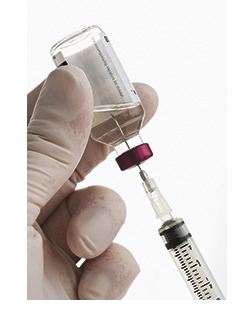The CDC announced on Thursday that so far, this season’s flu vaccine offers reduced protection from the flu. I talked to Dr. Jeff Duchin, our Interim Health Officer and Chief of Communicable Disease Epidemiology and Immunizations, to get a handle on what this really means.
Q: Does the CDC’s announcement mean that the flu vaccine isn’t working this year?
JD: It’s working, but not nearly as well as we would like. In this preliminary look at how well the flu vaccine is working, the CDC found that vaccinating provided reduced but meaningful protection in children 6 months to 18 years of age. In this group, the risk that someone would have to go to the doctor because of the flu was reduced by 23%. So the vaccine is providing important protection but much less that we usually see.
In adults 50 years and older, it’s not clear yet if the vaccine is going to offer any meaningful protection – the estimated effectiveness from this preliminary study was only 15%, but the study size was not large enough to tell with certainty if he vaccine offers any protection at all (for you statistical types, the 95% confidence interval included 0).
It’s important to keep in mind that we’re mainly talking about protection from the main strain of flu virus in circulation right now, influenza A H3N2. The flu vaccine was formulated earlier in 2014, but since then, that strain has mutated so that it is different from the vaccine. But the vaccine also covers influenza B strains which may circulate as we move further into the flu season. So even if it’s not great protection from H3N2, we could find that the vaccine is more effective against other strains that show up in coming weeks and months.
Q: Weeks and months? How long will the flu season last?
JD: Flu seasons vary from year to year, but they typically peak here in January or February followed by several weeks more of robust flu activity and can run into spring time.
Vaccine still worthwhile
Q: So would you say it’s still worth getting a flu vaccine?
JD: Yes, because H3N2 tends to cause severe illness, even some protection is worth while and flu will be with us for several more weeks or longer. We also may see influenza B outbreaks later in the season, which is not unusual, and the vaccine should work as usual against those viruses. Of course it’s true that the longer you wait, the less benefit you get from vaccination.
Q: If this flu vaccine was not well matched to the H3N2 virus and that’s the main virus circulating, why does it still have a vaccine effectiveness of 23%?
JD: Most likely the vaccine is working much better against the H3N2 viruses that have not mutated.
Ask for antivirals if you’re at high risk
Q: You mentioned that some people are at a higher risk for serious illness. If the flu vaccine doesn’t have full protection, is there anything else they can do to prevent hospitalization?
JD: Getting treated with antiviral medication promptly after flu symptoms develop can reduce the length of illness and the severity of symptoms. If you or your loved one is at high risk, see a health care provider as soon as possible after illness to discuss whether antiviral medication would be helpful for you.
Keep up with the latest from the Public Health Insider: Use the “Subscribe Via Email” button, just below the Public Health logo in the right-hand sidebar.


